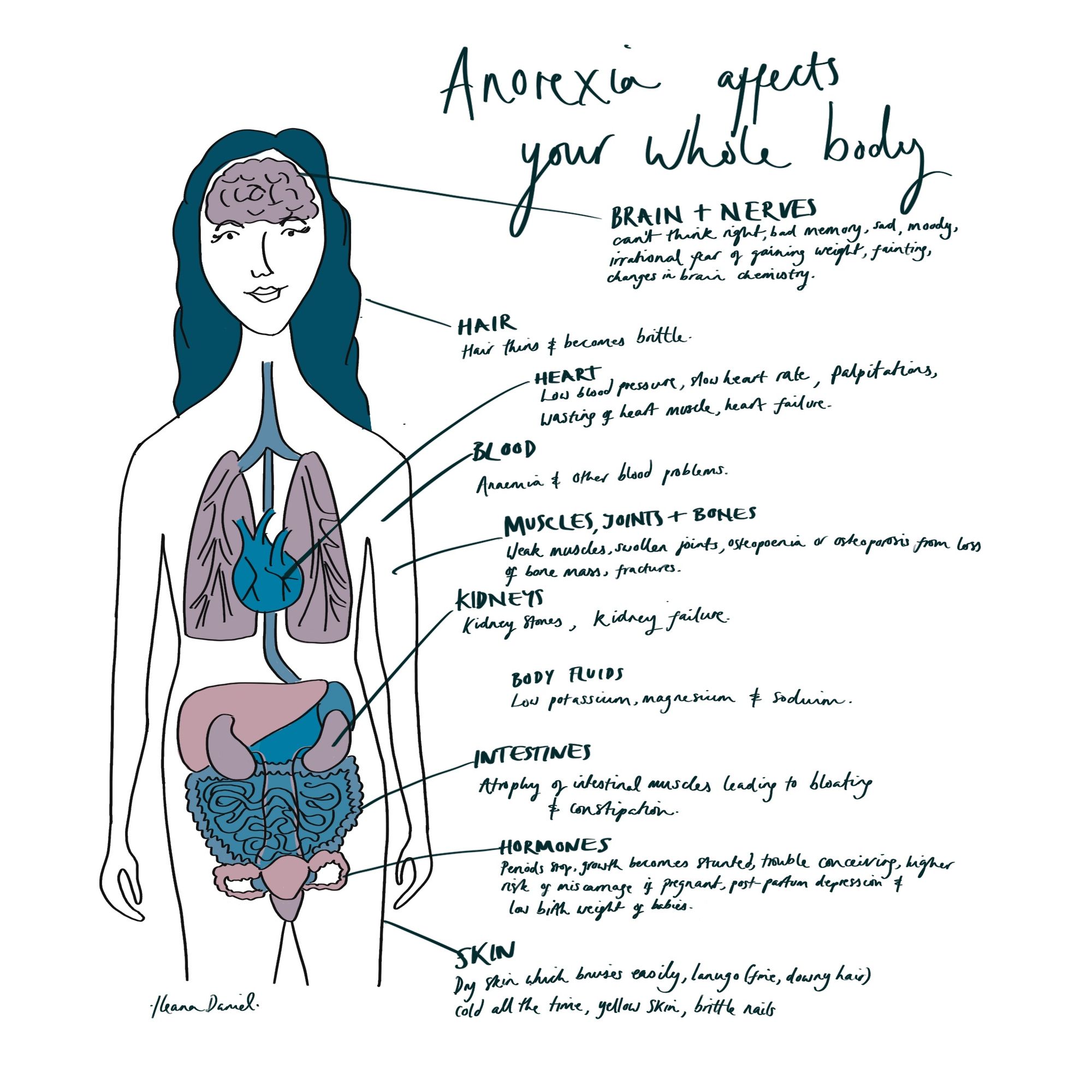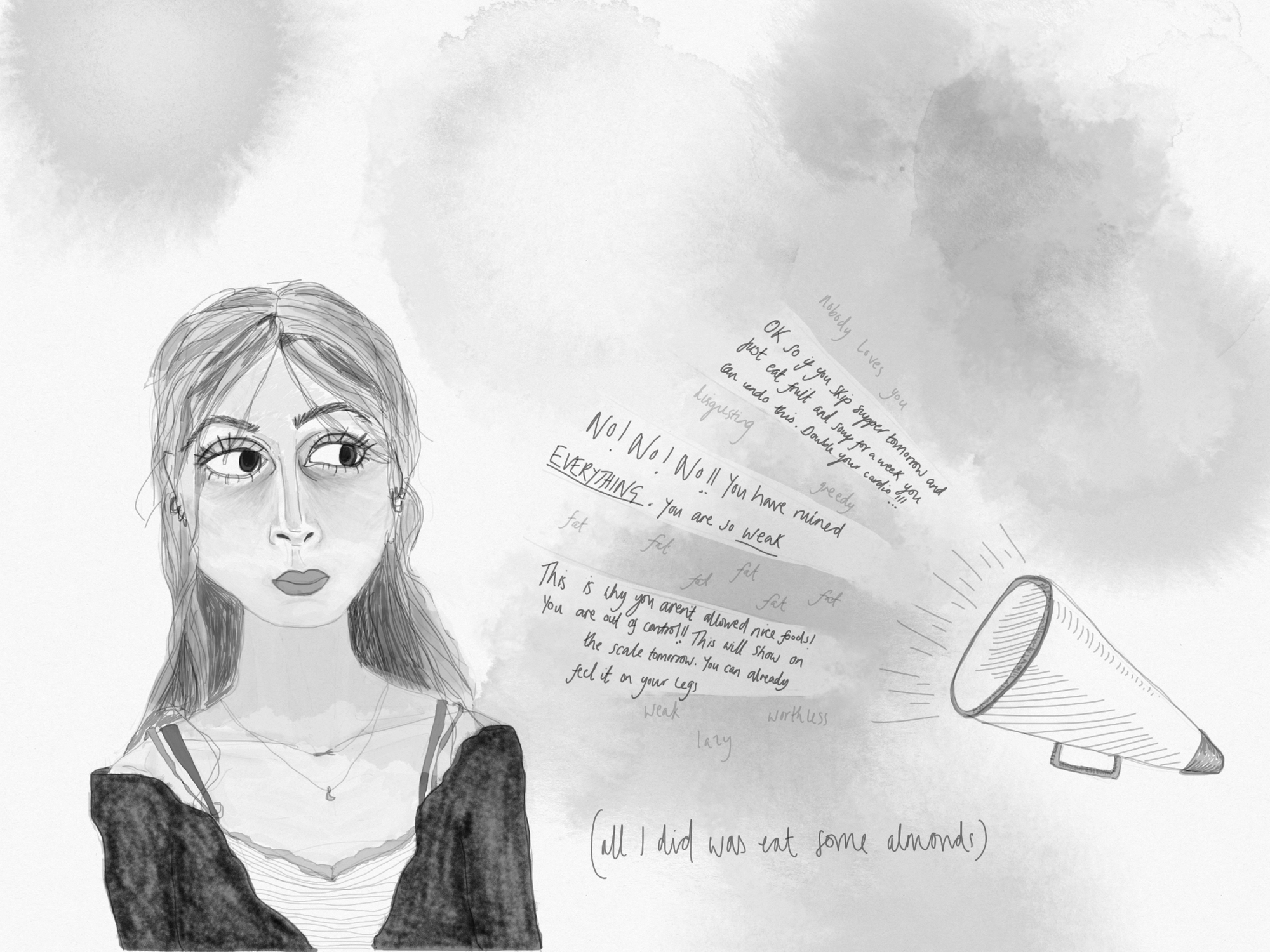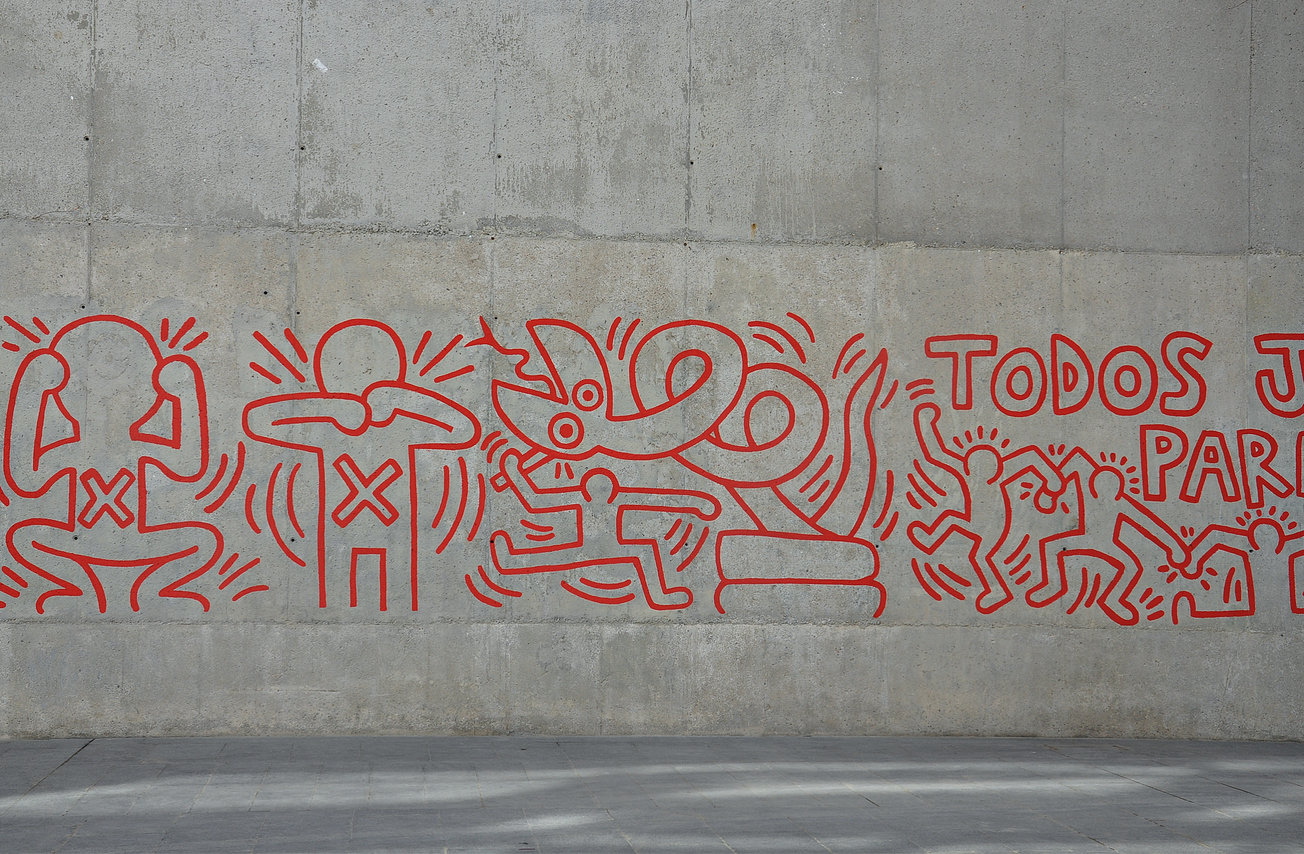By Ileana Daniel, Beat This Together
The Croft Magazine // To mark the start of Eating Disorders Awareness Week (EDAW), we look into potential causes of, feelings associated with, and organisations aiming to help those with, eating disorders.
Monday 2nd March marks the start of EDAW (Eating Disorders Awareness Week), a week which aims to raise awareness for eating disorders of all sorts, to educate whilst quashing unhelpful stigmas, as well as raising vital funds for charities such as Beat UK, which offer free support to sufferers and those who care for them.
A staggering 1.25 million people in the UK are estimated to be affected by an eating disorder; this accounts for 725,000 new cases being diagnosed per year, where 25 per cent are male.
| Voices from the dark: The stigma behind male eating disorders
With the advent of social media, pressures to constantly achieve (leaving no time for real rest), and the inability to never really ‘switch off’ when your phone is always within arm’s reach, a ripe climate has been created where the global prevalence of eating disorders has doubled between the years 2000 and 2018 – this statistic does not take into account the families, friends, partners and colleagues who are also affected; people who also deserve support when they are helping a sufferer.
| Eating disorders: skinny shakes and social media
To be ill with an eating disorder is to live a life where you are completely debilitated.
To be ill with an eating disorder is to live a life where you are completely debilitated. It is a traumatic existence where you are a shell of your former self, where the pursuit of control ultimately controls you. Emotional development halts while you are ill, your world is reduced and becomes polarised: in short, it is no life.

Maybe you are the sibling or partner of somebody affected; if you are, I’m sure you will understand when I say that Eating Disorders hurt everyone who comes into contact with them. The leading Eating Disorders charity in the UK is Beat, and their initiative for this awareness week is to campaign for greater levels of support to be offered to families and carers of those affected by Eating Disorders.
Being a perfectionist or competitive, experiencing abuse or assault resulting in trauma, and genetics specifically, play a huge role in the likelihood of developing an eating disorder.

It would of course be narrow-sighted to blame the rise in cases entirely on the pressures of our modern-day society. Being a perfectionist or competitive, experiencing abuse or assault resulting in trauma, and genetics specifically, play a huge role in the likelihood of developing an eating disorder.
A genetic link has been a long-suspected factor for developing an eating disorder; initiatives such as Charlotte's Helix, and the new EDGI project, aim to collect saliva samples from those with an eating disorder history, in order to identify similarities in the DNA of sufferers which will hopefully lead to a greater understanding of what is the most deadly group of psychiatric disorders.
Research from the University of South Carolina found specific anomalies in chromosome 12 of those with Anorexia, and the largest studies suggest a seven to 12-fold increase in the prevalence of Anorexia and Bulimia in those who also have direct relatives with an eating disorder.
Although family studies make it difficult to separate the genetic factors from the environmental, the evidence for a genetic, hereditary connection is incredibly strong; being able to identify those at higher risk to falling ill will invariably lead to improved treatment methods, and earlier interventions- something which is absolutely key to achieving a full recovery.
Beat This Together are running events for every day of EDAW. If you want to get involved, find us on Facebook and join us for some fun activities. Raising awareness for this issue is something that our whole committee is passionately motivated to work for: eating disorders certainly bring a lot of doom and gloom, but this week we will be making our voices heard and having fun while we do it.
Read some articles on personal experiences of recovery from eating disorders here:
| Eating disorders: the journey to recovery
| Eating disorders: the recovery process
Featured: The Haring Foundation
Find Beat This Together on Facebook here or Instagram: @bristolbeatseatingdisorders
Want to write for the wellbeing section? Get in touch.
Find The Croft Magazine inside every copy of Epigram Newspaper









